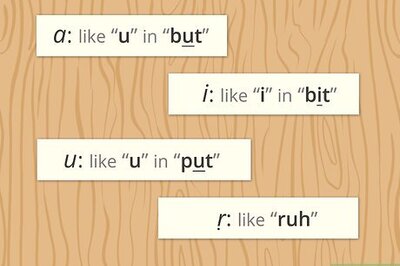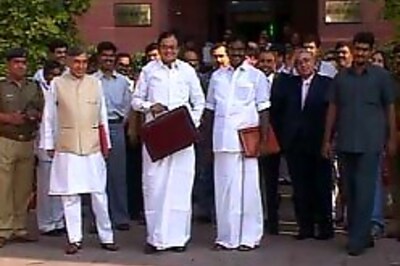
views
Tokyo: Oil prices steadied on Wednesday after slipping to new four-year lows, sapped by fears for fuel demand and the global economy amid travel and social lockdowns triggered by the coronavirus epidemic.
Brent crude was up by 34 cents, or 1.2%, at $29.07 a barrel by 0238 GMT, after falling earlier to $28.40, the lowest since early 2016. The international benchmark fell 4.3% on Tuesday.
U.S. crude was up by 13 cents, or 0.5%, at $27.08 a barrel, after falling to as low as $26.20, also the lowest in four years. West Texas Intermediate fell 6% on Tuesday.
"Demand growth is set to recover from H2 2020, as the impact of COVID-19 fades and affected economies post v-shaped recoveries," Fitch Solutions said in a note.
"However, the combination of the oil price collapse and spread of the virus has raised global recession risks," it said, slashing its forecast for Brent this year from an average of $62 previously to an average of $43.
A fall in U.S. inventories of crude, gasoline and distillates, as reported by an industry group, provided some support to prices, but the demand outlook remains grim amid a price war among major producers.
In efforts to support economies, the world's richest nations prepared to unleash trillions of dollars of spending to lessen the fallout from the coronavirus outbreak, as well as imposing social restrictions not seen since World War Two.
The impact on oil demand is starting to show in official statistics with Japan's trade bureau saying on Wednesday that crude imports into the world's third-biggest economy fell 9% from a year earlier in February.
Virgin Australia became the latest airline to shut down its international network with the suspension of all overseas flights, while Prime Minister Scott Morrison warned that the situation could last six months or more.
Also in Australia, Oil Search joined other energy explorers in slashing expenditure and new activity to cope with the fall in prices.
Elsewhere, Iraq's oil minister pleaded for an emergency meeting between members of the Organization of the Petroleum Exporting Countries (OPEC) and non-OPEC producers to discuss immediate action to help balance the oil market.
A price war has broken out amid the evaporation of demand after the collapse of an agreement on withholding supply between OPEC and major producers including Russia, a grouping known as OPEC+.
Iraqi oil minister, Thamer al-Ghadhban, asked OPEC to help "urgently achieve" extraordinary meetings of the OPEC+ group to "discuss all possible ways" to rebalance the oil market.
"It is unlikely that the current market conditions represent the desired outcome for either Saudi Arabia or Russia and that some miscalculations have been made on both sides," Fitch said.
"Nevertheless, polarised and seemingly intransigent negotiating positions and increasingly hardline rhetoric from both limit the scope for near term resolution," it added.


















Comments
0 comment